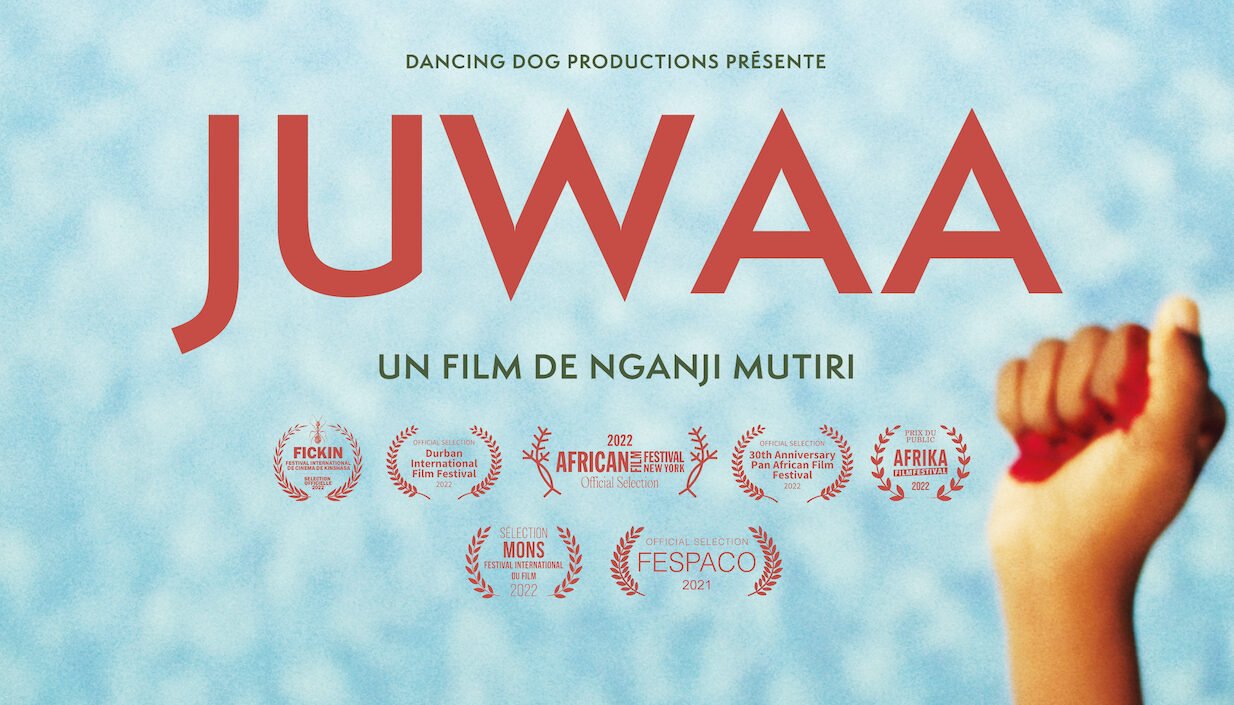[ad_1]
The writer, poet, theatre practitioner and photographer, born at Bukavu in the Democratic Republic of Congo, has honed his craft for about a decade, directing several short films, including Condamne (2012), Gni Ts Ac (2014), Joy Power (2016) and Le Soleil Dans Les Yeux (2016).
Mutiri, who has lived in Brussels, Belgium since 1996 – after an attempt on his father’s life forced his family to seek a new home in Europe – has also delved into acting, appearing in the Belgian crime series Salamander (2012-2018) and the Swedish drama series Hassel (2017).
Big steps and critical acclaim
In 2021, Mutiri, who is not shy about his pan-African leanings and his love for Fela’s socially conscious music, took a huge leap with the production and release of Juwaa, his feature directorial debut.
Filmed in Brussels and Kinshasa, the movie stars Edison Anibal, Babetida Sadjo, Claudio Dos Santos, Francisco Yvan Luzemo, Ady Batista, and Mireille Mbayoko Yaba, with Mutiri also making a brief but memorable appearance.

Juwaa tells the story of Riziki (Sadjo), an investigative journalist whose controversial article draws the ire of a government minister. Following a politically-motivated attack during which her husband Paul (Mutiri) is murdered, she is compelled to flee Kinshasa to Belgium and leave behind her son Amani (Anibal), a necessary risk that would be deemed unforgivable by her son, even by herself.
I would say I was lucky [with Juwaa] in that even though I was working with a Belgian production company, I still got some of the artistic freedom I needed.
With Juwaa, Mutiri weaves an emotive, unfiltered story that probes deep into the nuances of trauma, identity, filial bonds, self-discovery and forgiveness. The movie has enjoyed a good run in the international festival circuit: since its world premiere in 2021 at the 27th edition of the Pan-African Film and Television Festival (FESPACO) in Ouagadougou, it has been screened at the 2022 New York African Film Festival, the 2022 Mons International Film Festival in Belgium, and the 2022 Durban International Film Festival (where Babetida Sadjo was named Best Supporting Performer for her role in the film.)
Creative process, inspiration, and challenges
On the question of what inspired him to make Juwaa, Mutiri says: “I like to write and create the kind of movies that I wish to see in the cinema. Beyond that, I am inspired by what happens in my home country [Congo], where I live right now [Belgium], and the way human beings choose to deal or not with traumas.”
When asked about filmmaking in the DRC, Mutiri asserts that the kind of movies being made largely depends on the target audience, and where they will be distributed.
“What I see is that there’s a difference between what artists are locally creating that will rarely travel outside of Congo, and what artists are creating that will be in international festivals. Usually, the films that travel are financed mainly by European production companies, and recently I was having a conversation with other Congolese filmmakers about how this might influence the storytelling itself.
“It’s really up to us as film lovers to sometimes dig deeper with respect to the kind of films we want to see. I would say I was lucky [with Juwaa] in that even though I was working with a Belgian production company, I still got some of the artistic freedom I needed.”
Mutiri says in making Juwaa, what he found most challenging was the financing required to keep the production alive, and the need to be flexible with the creative process.
“We were trying to achieve high-quality value with a low budget. This meant that the team had to be emotionally invested in the story. We had to find a balance between the outcome we wanted and the shortage of means we had. There were times where we had to put in unpaid hours.
“I also had to be willing to rewrite the script as many times as was necessary. We found that shooting days were reduced from 32 days to 28 days, and I had to find a way to keep my narrative as strong as I wanted it to be, even with less time available.”
Cultural impact
In terms of cultural impact, Mutiri further mentions that the film has succeeded in stirring conversations among young black filmmakers in Belgium on what kinds of stories can be told.
“Some of the most moving conversations I had about the impact of Juwaa happened at the end of an independently-organised, sold-out screening in Brussels at the Cinéma Palace, where people [in the audience] talked about how the film deeply touched them to the point where they were eager to open up about their respective family traumas. They also said that it was refreshing to see multi-layered black characters on the big screen, interpreting a story that is much different from the white saviour narrative that the [European] film industry usually puts forward,” says Mutiri.
He says: “One black female filmmaker in particular was in tears while explaining how Juwaa has reinvigorated her resolve to tell more of her own stories with adequate black representation. This comforted me in [at least] two respects: One, Juwaa with its original screenplay is a positive Afro-European anomaly in this film industry. Two, even if in Brussels, where I am based, some distributors politely refuse to distribute Juwaa, my team is convinced that our film is contributing in changing narratives.”
[ad_2]
Source link
